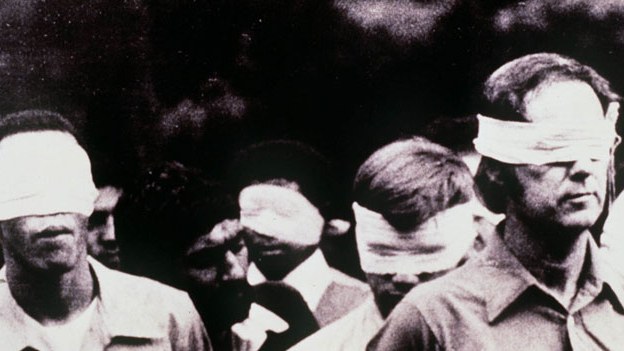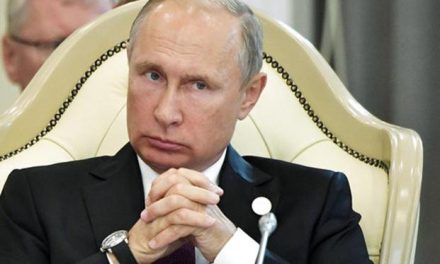President Trump found a fine way to end the decade by doing his best Jimmy Carter impression. While generally reticent to use military force, when he does use it it usually doesn’t end well. In this case, it was an example of thoughtless over-exuberance.
The airstrikes targeted an Iranian-backed Iraqi militia, Kataib Hezbollah, which the United States accused of carrying out a missile attack on an Iraqi military base that killed an American contractor and wounded American and Iraqi service members. A spokesman for the militia denied involvement in the attack.
But the size of the American response — five strikes in Iraq and Syria that killed two dozen fighters and wounded dozens of others — prompted condemnation from across the political spectrum and accusations that the United States had violated Iraqi sovereignty.
I guess the theory was that the best deterrence is a disproportionate response. But there were some flaws with the theory.
Thousands of protesters marched into Baghdad’s heavily guarded Green Zone on Tuesday after prayer services for the militia fighters killed in the American strikes. While few of them were armed, many were members of Kataib Hezbollah and other fighting groups that are technically overseen by the Iraqi military. The militia is separate from the Hezbollah movement in Lebanon, although both groups are backed by Iran and oppose the United States.
At the United States Embassy, protesters used long poles to shatter security cameras, covered the compound walls with anti-American graffiti and lit a guardhouse on fire. After breaking open a compound entrance, dozens of men entered and lit more fires while embassy security guards watched them from the embassy roof and fired tear gas.
It could have been worse.
The men did not enter the main embassy buildings and later withdrew from the compound, joining thousands of protesters and militia fighters outside who chanted “Death to America,” threw rocks, covered the walls with graffiti and demanded that the United States withdraw its forces from Iraq.
The government did little to protect the embassy, although they did eventually persuade the protestors to disperse. Then they joined them in condemning the United States.
Condemnation of the recent airstrikes continued on Tuesday. The Iraqi prime minister, Adel Abdul Mahdi, announced an official three-day mourning period for the men killed in the strikes, which he called an “outrageous attack.”
My understanding is that the Iraqi people are highly displeased with their government and with the influence of Iran over their internal affairs, but they don’t feel very positive about America’s presence in their country either, as these developments illustrate.
These retaliatory airstrikes have weakened the United States’ standing in Iraq while strengthening Iran’s hand, which makes them a rather obvious mistake. The embassy in Baghdad is quite obviously insecure and a new hostage situation has to be considered a distinct possibility. In any case, it’s resonant of the Iran Hostage Crisis and it makes the president look impotent, which is probably not what he was going for when he authorized the strikes.





